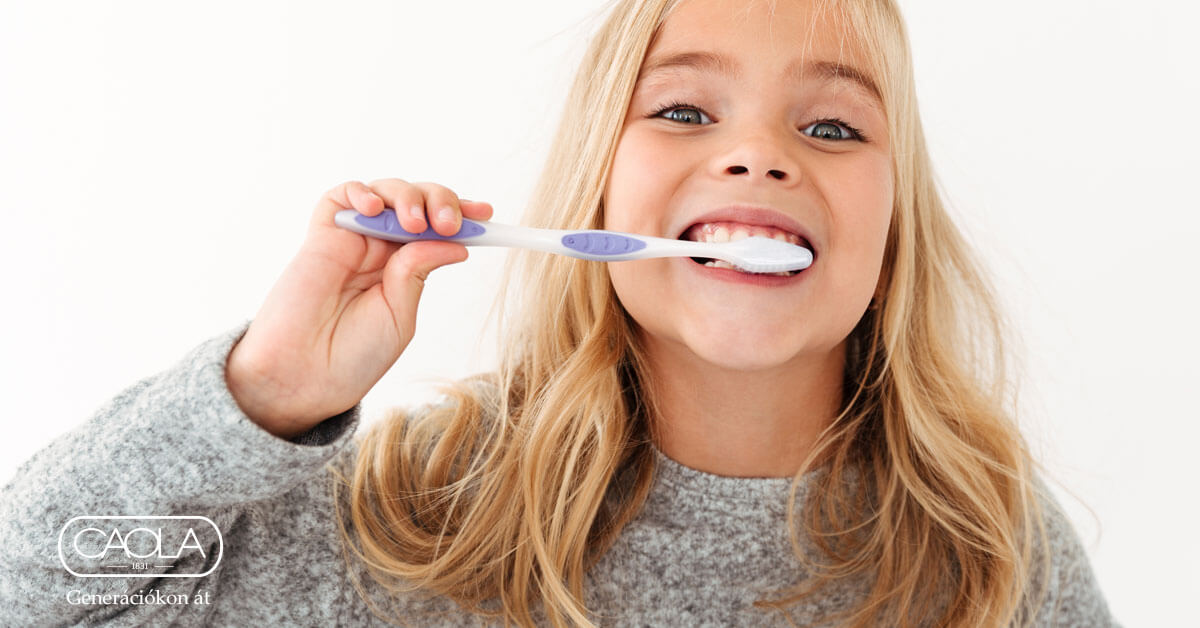Teach your child to practice good oral hygiene from a very young age. Brushing twice a day, using a proper toothbrush, toothpaste and floss is very important to prevent tooth decay and gum disease in children. Teach your child to practice good oral hygiene from a very young age.
With proper attention, your child can develop an oral care routine from an early age that promotes lifelong oral hygiene.
When should I start brushing my teeth?
Developing good dental hygiene starts from infancy. Babies' mouths should be cleaned from birth. After your baby has finished eating, whether breast milk or formula, wipe his or her gums with a soft cloth or damp gauze. You can start brushing your baby's teeth as soon as the first teeth appear. Use a small, soft, baby-sized toothbrush and a small toothpaste about the size of a grain of rice. The toothpaste can be used as soon as the first baby tooth emerges. It is advisable to choose toothpaste that is specially formulated for children and does not contain added fluoride.
Around the time of your child's first dental visit, around his or her first birthday, is a good idea. This will help your child to develop a relationship with the dentist and get used to the sights and sounds of the surgery. The dentist will also make sure that your child's teeth and gums are healthy and developing well, and will be a partner in teaching your child oral hygiene.
Do a child's toothbrush and toothpaste matter?
When the baby starts eating solid food and teething begins, a finger brush can be used. This brush is made of rubber, has soft bristles and slides comfortably on the index finger. Gently rub your finger along the baby's gum line and around the teeth that are about to emerge. Yes, the type of toothbrush makes a difference. Small, soft-bristled toothbrushes should be chosen for toddlers, as hard-bristled toothbrushes can cause irritation in little ones' mouths and discourage them from brushing.
Use a toothpaste specially formulated for children, a pea size amount, with the right toothbrush. While fluoride is important for children, too much fluoride can be bad for children and can lead to fluorosis. This naturally occurring mineral strengthens enamel and builds up in permanent teeth, making them resistant to decay. Use only properly tested children's toothpaste and check with your dentist, who will help you decide whether your child needs fluoride toothpaste or fluoride-free toothpaste.
When first teaching your child how to brush their teeth, it is recommended that you brush together. Children may not know how to hold a toothbrush properly, and most lack the manual dexterity or motor skills to remove plaque effectively. When children brush their teeth, stand behind them and reach around them to hold the toothbrush comfortably. Ask your child how it feels. If it hurts, stop and make sure the gums are not irritated. For really lively toddlers who don't like brushing, sit on the bed or on the floor and let your child lie with their head in your lap. This gives a little more control. Brush your child's teeth twice a day. Where teeth are in close contact, it is advisable to floss once a day. While brushing or flossing, explain what is being done so that the child starts to understand what is happening and why it is happening. Around the age of two or three, you can let your child brush their teeth on their own, but it is a good idea to monitor to make sure they have not missed any areas. This will help them develop some independence and learn the correct technique.
8 tips for teaching your child good oral hygiene
- Allow your child to brush his or her own teeth, but supervise his or her efforts until at least 7 or 8 years of age, when he or she can brush effectively.
- Use a toothbrush timer app or an actual physical timer to help children brush for two full minutes.
- Brush with the child. Show them how to brush all the way to the back molars and along the gum line.
- Explain what will happen if they don't brush or brush well enough. Talk to them about the causes of tooth decay, what cavities are and why it's best to avoid them. Don't scare them and don't use terms like "drill" or "hurt" when talking about the dentist. Instead, give them an overview of why oral hygiene is so important, using child-friendly, positive terms.
- Fun, kid-themed toothbrushes and tasty children's toothpastes can go a long way toward making kids more receptive to brushing.
- When it comes to children's toothpaste, we recommend Ovenall Huncut children's toothpaste from 6 years old and Ovenall Huncut fluoride-free toothpaste from 0-6 years old.
- Keep up with regular check-ups at the paediatric dentist.
- Things such as two-minute brushing songs, brushing together with parents and turning oral hygiene into a game will make children more likely to brush their teeth.
